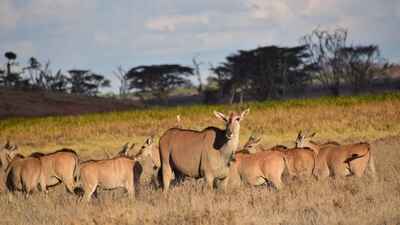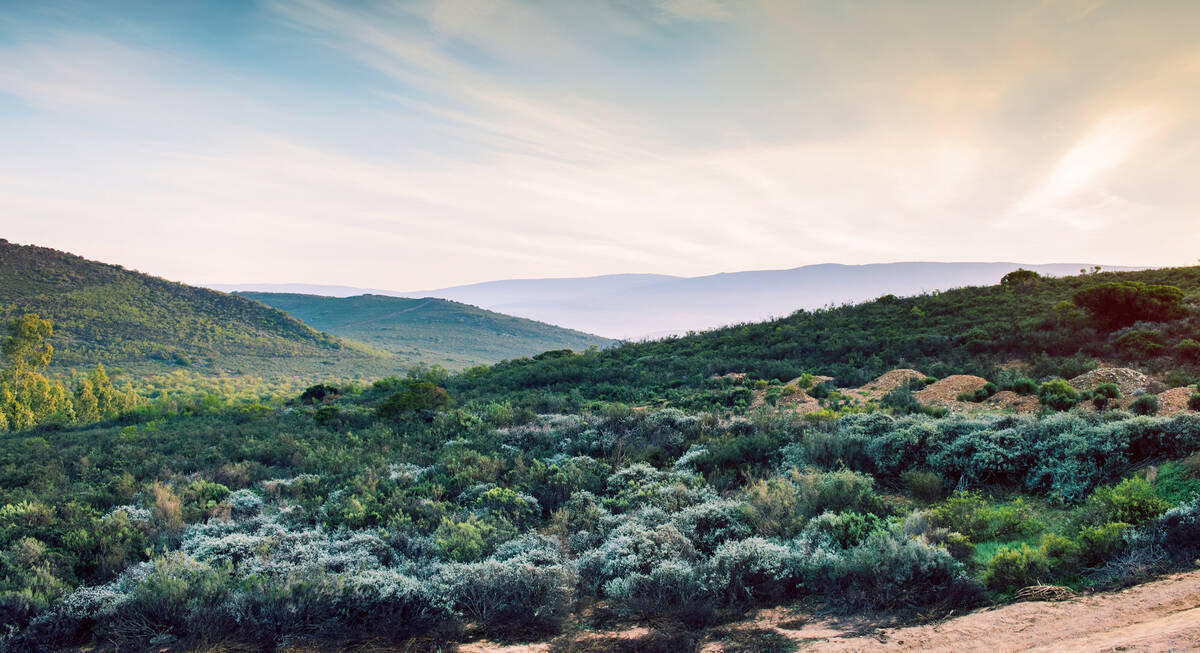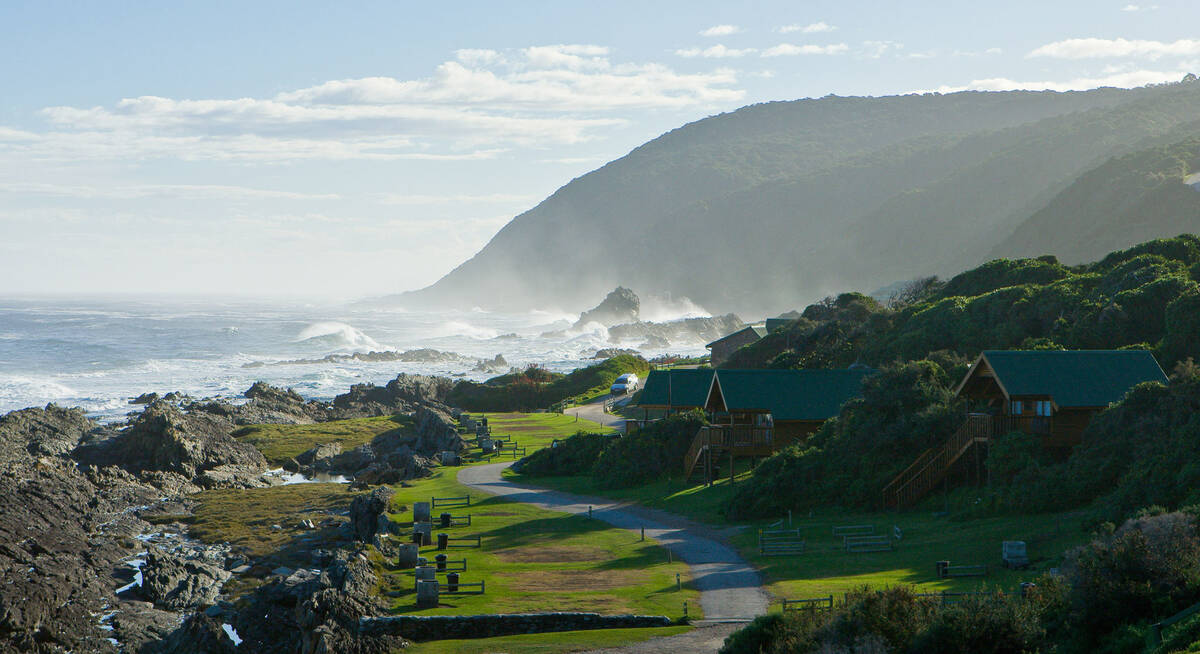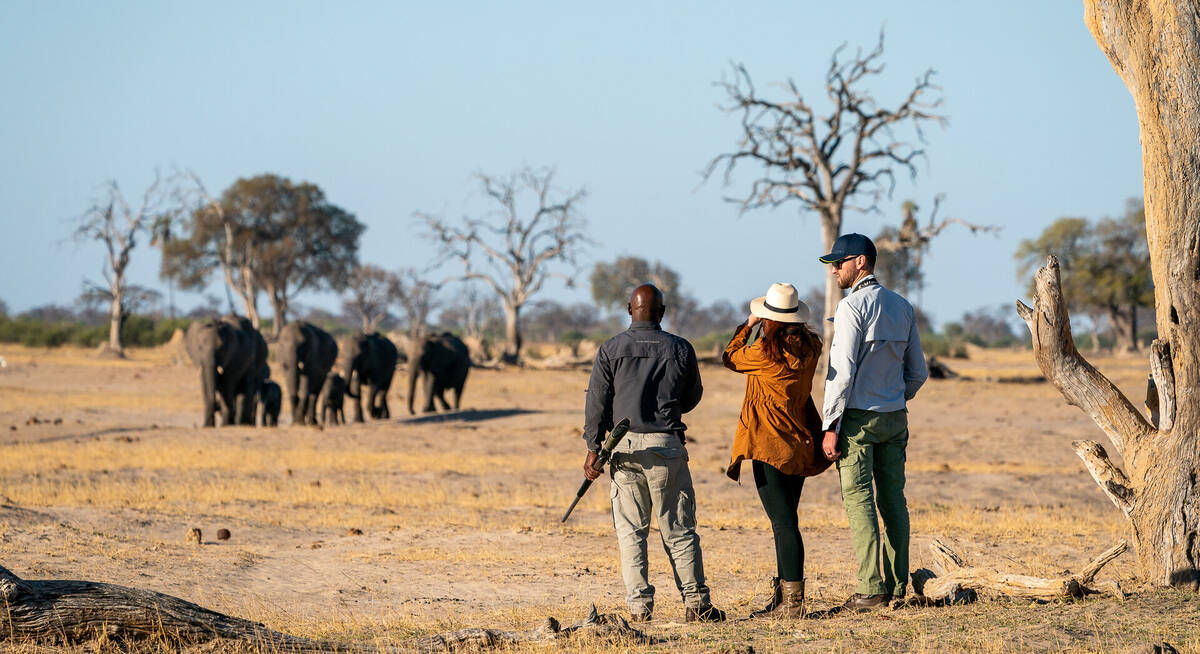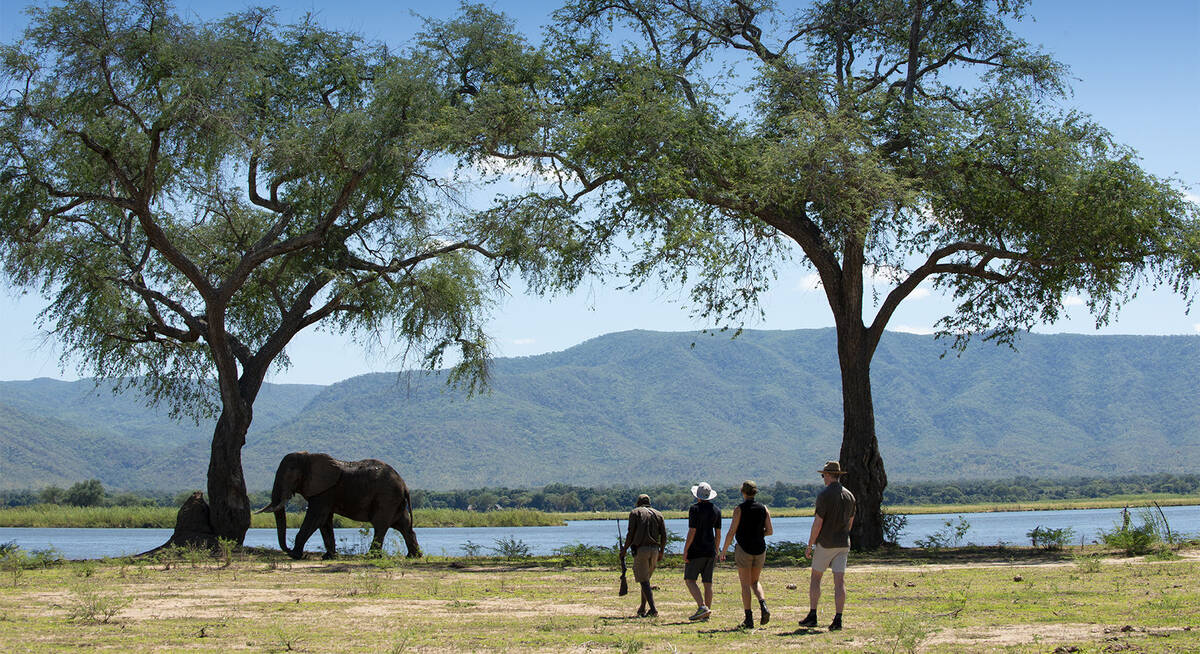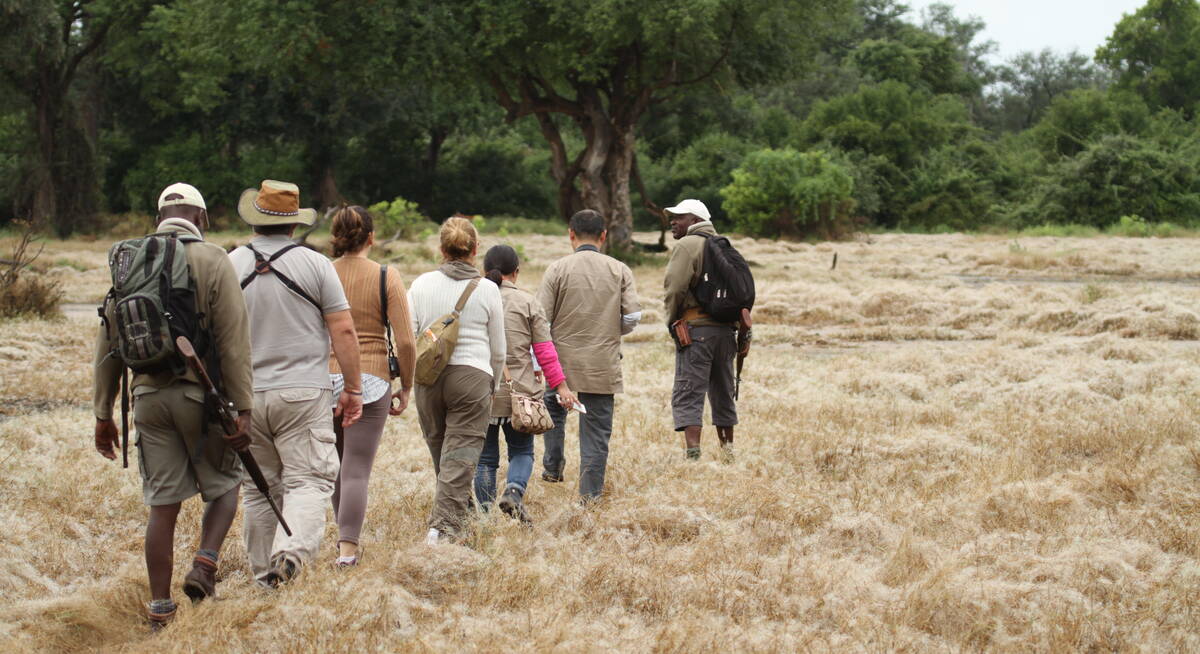Eland in Africa
The eland is Africa’s biggest antelope and looms large in the continent’s culture, from prehistoric rock art to modern game farms. Though widespread, it is shy, with sightings seldom a given.
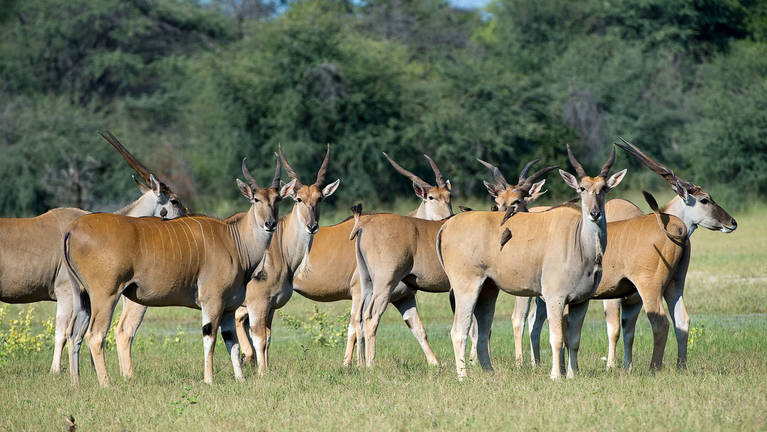
Quick facts about Eland
| Scientific name: | Taurotragus oryx | Habitat: | Open savanna & grasslands |
|---|---|---|---|
| IUCN status: | Least concern | Adult weight: | 340–940kg |
The massive, tan-coloured, common eland is related to kudus and other spiral-horned antelope species. Both sexes have a signature square profile – accentuated in the bull by a large dewlap – and straight horns that are longer and narrower in the female. The ox-like males are twice the weight of females, sometimes reaching buffalo size.
Herds, sometimes of several hundred, wander widely in search of food. Inhabiting open country, from arid bush to montane grassland, eland graze during the rainy season but may switch to browsing during the drier winter months. Though relatively slow-moving, they can leap impressive heights. Females produce a single calf after a nine-month gestation. Today eland are farmed in some areas for meat and milk.
1.83m
Max shoulder height of bull
2.5m
Jump height
15–20 years
Life expectancy
7 litres
Daily milk production
Africa's top camps for seeing eland
Based on 1753 reports by our travellers since May 2018, the camps below have the best chances of sighting eland. Simply follow the key below.
Best chances to see
Good chances to see
Some sightings
No sightings yet
Where to see eland in Africa
Look out for elands in open terrain in any major conservation area across southern and eastern Africa, including mountainous ones. But be prepared to enjoy these shy animals from a distance.
Top tips for viewing eland
Ancient rock art across much of Africa attests to the eland’s former significance as both spiritual totem and food source. Today the species remains widespread, occurring from South Sudan to South Africa’s Cape, but numbers are much reduced, with a total population estimated at 136,000.
Eland are plentiful in the Serengeti-Mara ecosystem and central Botswana, but can nonetheless be elusive. Reliable spots for sightings include Mana Pools(Zimbabwe), Etosha (Namibia) and the Nyika Plateau (Malawi). The species has also been introduced to many private game ranches in South Africa, Namibia and Zimbabwe.
Wary of humans, whether on foot or on wheels, elands are most active at dawn and dusk. Listen out for the tell-tale click of their hooves when they approach a waterhole.
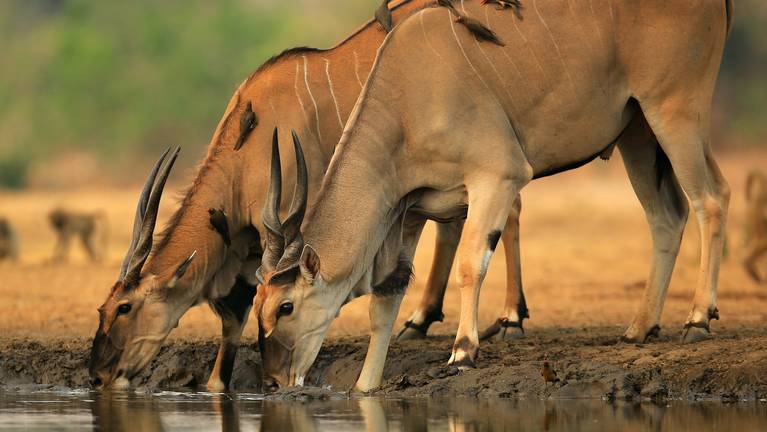
Holiday ideas to see eland
Based on our travellers experiences, these are the holidays which will give you the best chances of good eland sightings
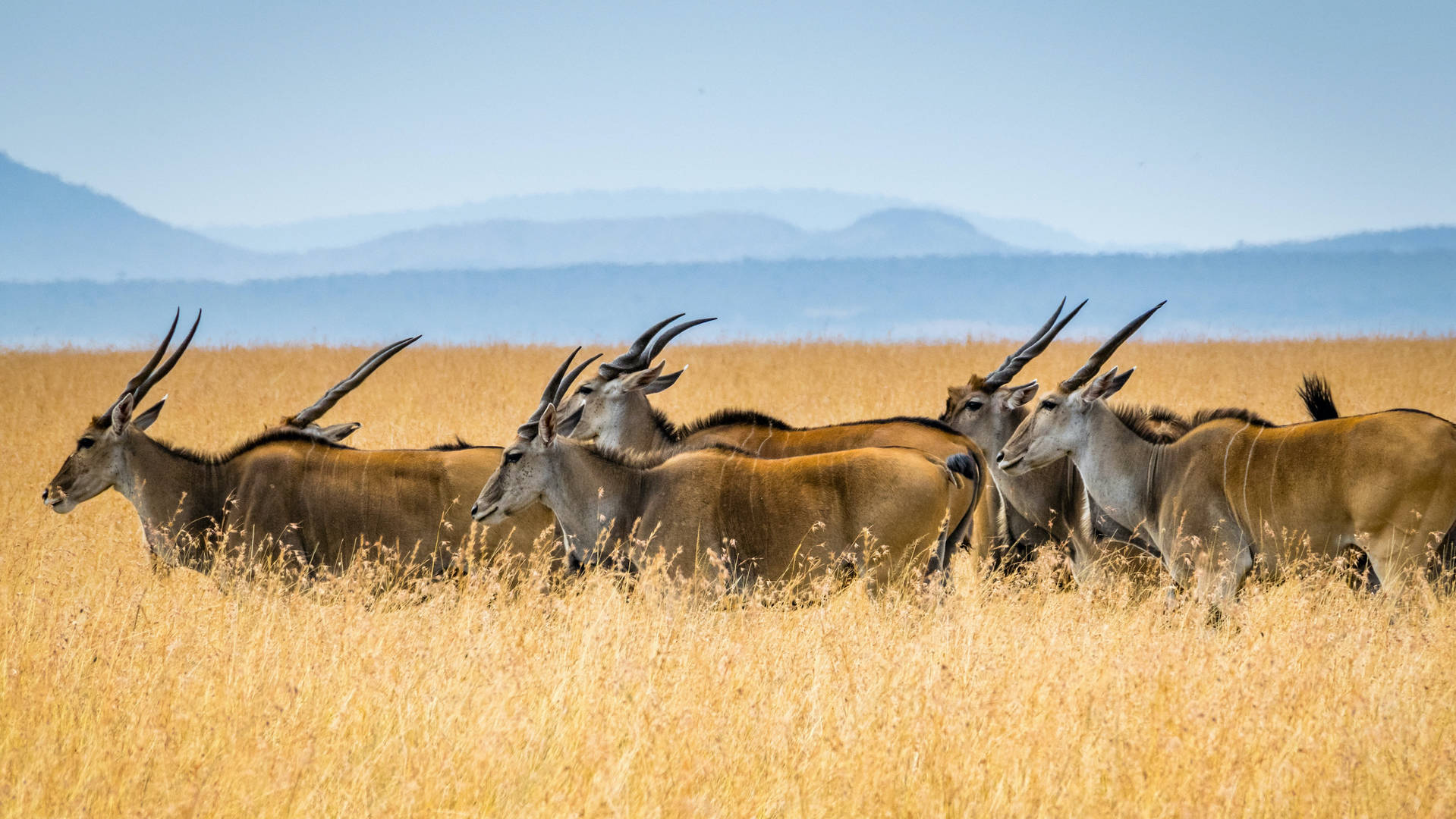
Our top destinations for eland
Click below for detailed information about eland in these countries, including our latest sightings data from the camps and lodges there.
